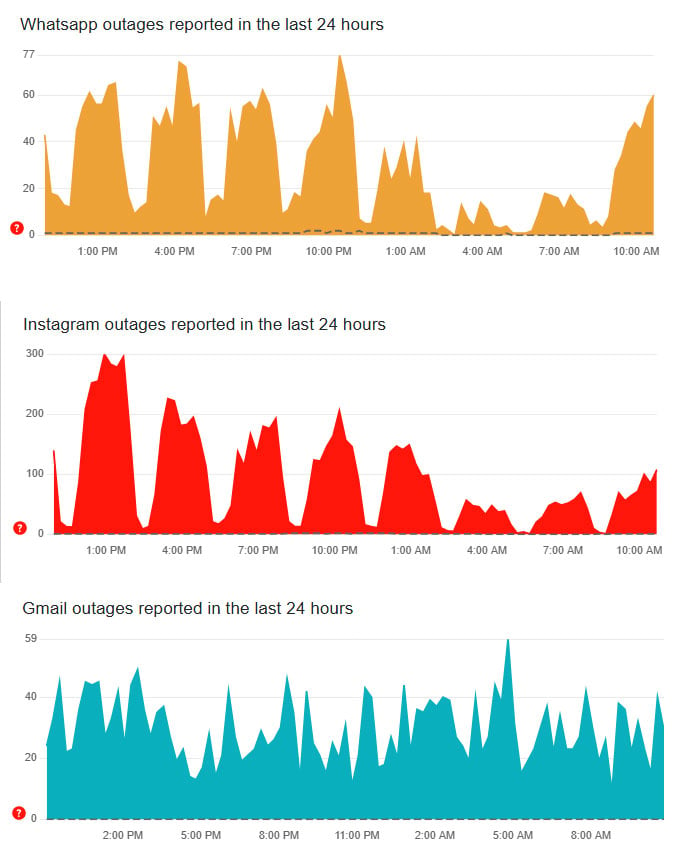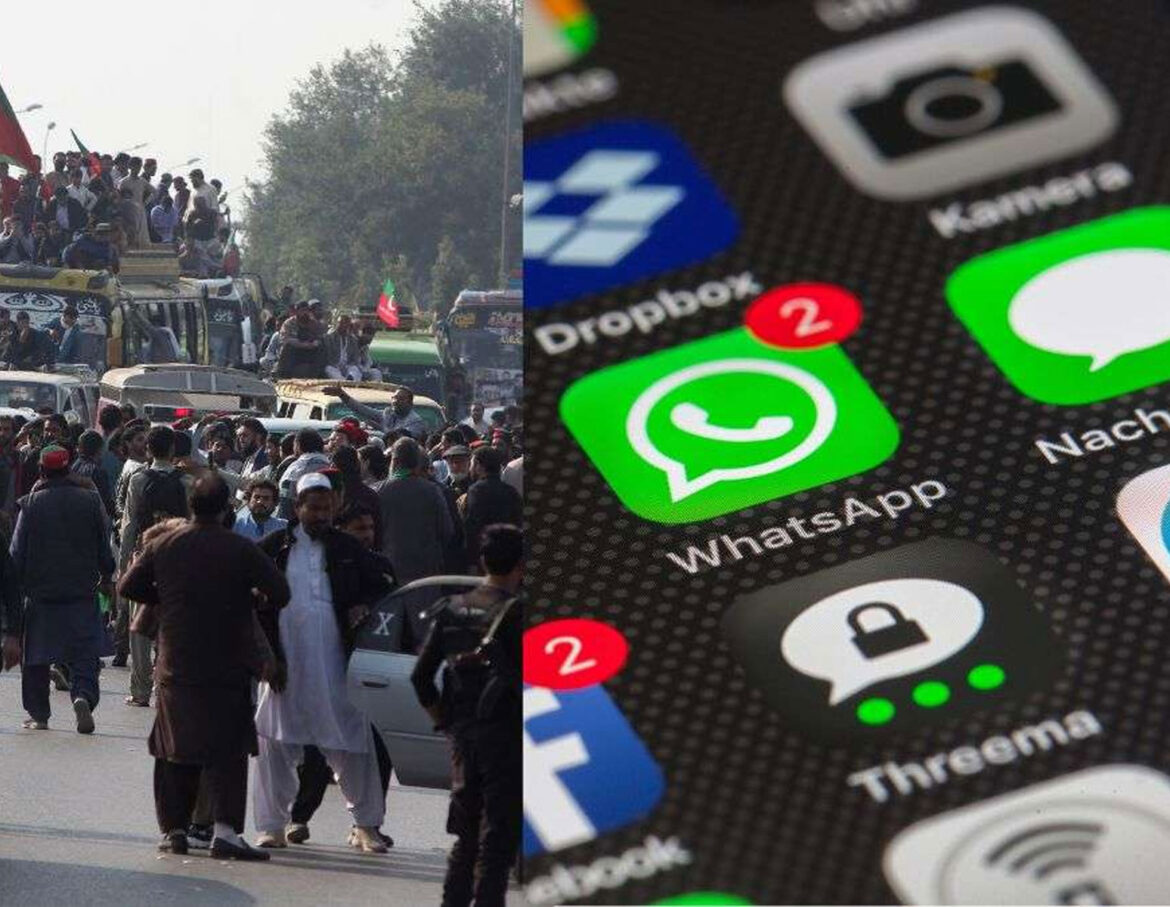Social media platforms and internet services across Pakistan faced significant disruptions on Saturday as the government implemented measures to hinder Pakistan Tehreek-e-Insaf’s (PTI) convoy heading to Islamabad for a protest rally.
Despite several hours of outages, no official explanation has been provided, intensifying speculation about the timing of these disruptions. Downdetector.com confirmed that users in Pakistan were struggling to access WhatsApp, Instagram, Facebook, and other platforms. Furthermore, VPNs, often used as a workaround during such blackouts, were reportedly ineffective this time.

The authorities have previously stated plans to limit internet access in areas deemed high-risk for security, but whether these restrictions extend to nationwide social media blackouts remains unaddressed.
Journalist Shahjahan Khurram, based in Islamabad, criticized the recurring disruptions, stating, “To survive without the internet and go about your daily activities, whether it be your job or academic activities, in this day and age, seems extremely difficult.”
Similarly, Islamabad resident Farhad Jarral accused the government of taking its control measures to a new level. “This time, not only were major social media platforms blocked, but even VPNs were rendered ineffective,” he noted.
In Karachi, 27-year-old Tallal Aazmi shared his frustration, saying, “The internet is so slow right now, I can’t even share media on WhatsApp. It’s super frustrating and slows everything down.”
Rabia, a resident of Lahore, voiced her concerns about freedom of speech: “The government has been curtailing our right to information, violating our rights, while they themselves use these platforms. These shutdowns are not only impacting the public but also making us a laughing stock internationally.”
State Minister for IT, Shaza Fatima Khawaja, added fuel to the fire by labeling PTI’s protest call as a “Fitna Call” on social media, further highlighting the government’s narrative against the opposition.
PTI’s founder, Imran Khan, has urged supporters to gather at D-Chowk in Islamabad and remain until their demands are met. In response, Prime Minister Shehbaz Sharif’s government has deployed tens of thousands of police and paramilitary forces in riot gear and blocked major highways leading to the capital.
As political tensions rise, ordinary citizens remain caught in the crossfire, struggling with the dual challenges of limited access to digital platforms and the broader implications for civil liberties.



